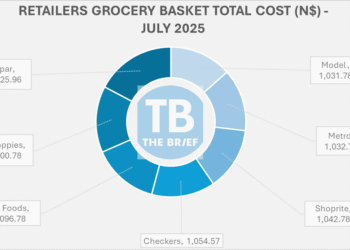
After crashing through R16/$ on Thursday, the rand was slightly stronger at R15.90 on Friday morning.
The local currency has lost more than 10% of its value against the dollar so far this month. It started April around R14.25 to the dollar.
It also dropped from R19.06 to the pound at the start of the month to R19.96 on Friday, and from R16.14 to the euro to R16.79.Â
The dollar edged down from its recent 20-year high on Friday but was still on track for its best month since 2015, having been boosted by a combination of expectations for US. rate hikes and growth concerns in China and Europe.
In the final trading day of a seismic month for currency markets, major currency pairs pulled back slightly from their recent trajectories as global markets stabilised and a Chinese tech rally put Asian shares on track for their best day in six weeks.
On Friday morning, the dollar index was down 0.7% on the day at 102.91, but still set for a 4.7% gain in April.
Weaker-than-expected US growth data on Thursday did little to stop the dollar’s rise, with investors still expecting a 50 basis point rate hike at the Federal Reserve’s meeting next week.
“The Fed has done a lot of work to communicate the markets to where they are now and one surprisingly weak GDP print was never going to see that unravel,” said Derek Halpenny, head of research at MUFG, in a note to clients.
The euro was on track for a 4.4% monthly drop versus the dollar, set for its worst month since 2015.
Having dropped through $1.05 for the first time in five years on Thursday, it stabilised somewhat on Friday at $1.10575.
The euro has lost around 6.5% versus the dollar since Russia’s invasion of Ukraine on February 24, with investors concerned about Europe’s energy security, inflation and growth.
Traders were waiting for euro area GDP and “flash†inflation data, due at 0900 GMT. European currencies could benefit if the inflation data surprises to the upside, prompting remarks from more hawkish European Central Bank members, ING FX strategists wrote in a client note.
Dollar-yen stayed above the key psychological 130 level, at 130.065, having crossed 130 for the first time in 20 years on Thursday when the Bank of Japan vowed to stick to its super-low yield policy.
Meanwhile, the British pound edged higher to $1.256 as the dollar weakened, but was still set for its biggest monthly drop since 2016.-fin24











